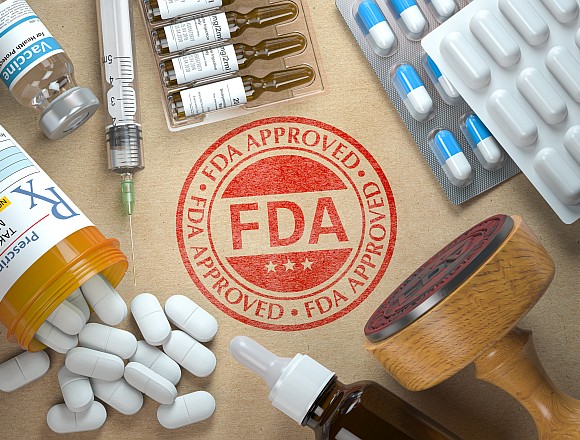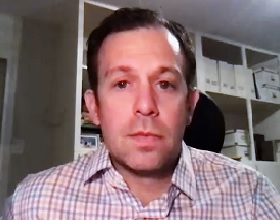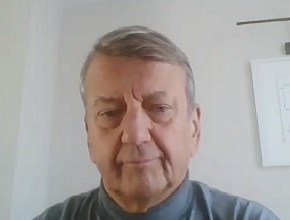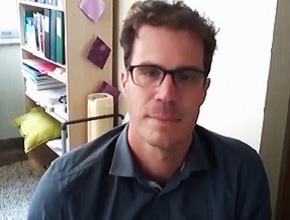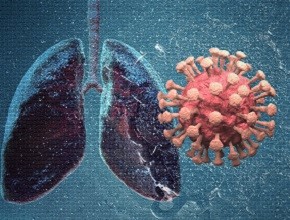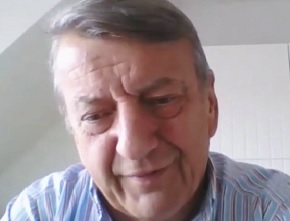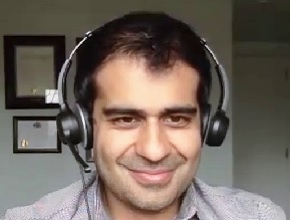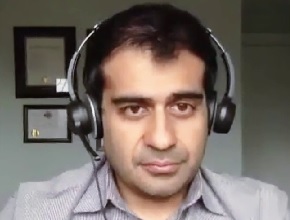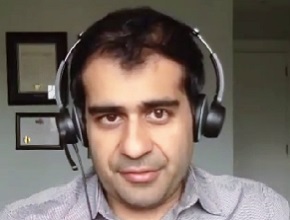Dr Gordon Guyatt, distinguished professor in the Department of Health Research Methods, Evidence, and Impact at McMaster University and one of the founders of evidence-based medicine, joins Dr Roman Jaeschke to discuss the latest findings on tocilizumab in the treatment of coronavirus disease 2019 (COVID-19).
Roman Jaeschke, MD, MSc: Good afternoon, welcome to another edition of McMaster Perspective. I have the pleasure to reintroduce Professor Gordon Guyatt, who visited us on a number of occasions.
Gordon, on this occasion I would like to talk to you about practice guidelines related to coronavirus disease 2019 (COVID-19) in which you are taking part. Because there are many groups working on practice guidelines, I wonder if you could say a few words about your group.
Gordon Guyatt, MD, MSc: Okay. The core that has organized what we are doing is the MAGIC Foundation. For those who know the GRADE approach to rating the quality of evidence and strength of recommendations, it will make sense to you when I tell you that MAGIC stands for Making GRADE the Irresistible Choice. That foundation, with which I work closely, has for several years now worked very closely with the British Medical Journal (BMJ) to produce what are called BMJ Rapid Recommendations, which [they] try to update when new evidence—practice-changing evidence—becomes available, do the necessary systematic reviews, and produce new guidelines. MAGIC and the BMJ have now partnered with the World Health Organization (WHO) and this partnership is producing WHO recommendations under the WHO auspices that get published as WHO documents and also get published in the BMJ as WHO recommendations.
Roman Jaeschke: You are obviously heavily [involved] at the moment in COVID-19 prevention and treatment.
Gordon Guyatt: Yes. So this collaboration, the collaboration that I just described, between MAGIC, BMJ, and WHO is specific to producing COVID-19 guidelines.
Roman Jaeschke: The patients you are concerned with, are all of them hospitalized, in critical care or…?
Gordon Guyatt: Everybody. We have recommendations about preventing COVID-19, we have—or will have—recommendations focused on the mildly ill, and the severely ill, and the critically ill.
Roman Jaeschke: As you know, I’m mostly interested in critical care, so maybe we will concentrate on this area. Would you be able to review with us what you have issued so far?
Gordon Guyatt: Yes. We have issued a strong recommendation in favor of corticosteroids, we have issued a weak recommendation against remdesivir, and we have issued a strong recommendation against hydroxychloroquine and lopinavir/ritonavir.
Roman Jaeschke: And this would mean… You know, different people define it differently, but I suspect these are people who require oxygen and are admitted to hospital. Would that be fair to say?
Gordon Guyatt: Yes, these recommendations apply to the severely and critically ill and indeed, with respect to steroids we found the subgroup effect critical (crucial) and some suggested against steroids in the nonseverely ill.
Roman Jaeschke: So essentially nonhospitalized, home-treated [patients].
Gordon Guyatt: It’s a little… we decided not to define it in terms of hospitalization because criteria for hospitalization vary radically in different jurisdictions.
Roman Jaeschke: Right. I wonder if the issue of subgroup analysis entered your discussions. We seemed to have on occasions slightly different recommendations for different either stages of disease or levels of severity.
We just got the Surviving Sepsis Campaign guidelines, which actually suggest the use of remdesivir in nonventilated hospitalized patients and, again, a weak suggestion against using remdesivir in ventilated people. People seem to be looking at this subgroup analysis. You are a world expert on subgroup analysis. How is your group approaching it? What is your opinion?
Gordon Guyatt: Well, we have a new instrument out that was developed by the world experts in subgroup analysis, with the perhaps slightly odd name of ICEMAN (Instrument for assessing the Credibility of Effect Modification Analyses), which we recently published and which is our approach. What ICEMAN does is you end up with a visual analog scale from “We are sure the subgroup is bogus” to “We are sure it’s the real thing,” and remdesivir ends up with the particular subgroup that would hypothesize that it works in the less severely ill and maybe even kills people in the severely ill [group]. That comes out as [having] intermediate [credibility] when you apply ICEMAN.
So, it is not unreasonable for somebody to look at that evidence and say, “Well, we think it’s probably a true bill” or—what the MAGIC-BMJ-WHO collaboration did in the WHO guidelines—to conclude, “Probably it’s not a true bill.” It is one of those things and it will be interesting: the RECOVERY, I think, and SOLIDARITY have continued to enroll in the remdesivir [group] and when they report their results, which the rumor is are not going to make anybody more enthusiastic about remdesivir, it will be interesting because they may well provide the data that will allow us to decide that this subgroup analysis is a true bill or that it is bogus.
I was part of the group of skeptics, so I’m thinking that when we get the whole data, they will prove bogus; but we’ll see.
Roman Jaeschke: Well, I will be very interested in what people come up with when it comes to anticoagulation. But in the meantime, you mentioned RECOVERY, you mentioned the speed with which we are getting the data. Today [February 13, 2021] we’ve seen a press release of a new medication. Could you comment on tocilizumab?
Gordon Guyatt: Well, you’re actually maybe even 2 days behind. Two days ago I think we had a press release and either yesterday or today we had a preprint (doi: https://doi.org/10.1101/2021.02.11.21249258). That saved us some agony because we were agonizing about… we have decided—our group has decided—that we believe preprints, and there’s research going on as I speak to decide on the credibility of preprints, like to what extent the things change from the preprint to the time when it’s published.
The answer thus far is fortunately “not much.” Certainly with smaller trials from less credible groups they do change; in one case things went from unblinded to blinded, for instance, which is a little troubling. But when the preprints have been produced by major groups, between the preprint and the final [version] things change very little. So we’ve decided we believe preprints. We have not yet crossed the boundary that we believe press releases. And all we had for tocilizumab was the press release; it threw us into a bit of a quandary but within a day or two we had the preprint and that makes things better.
Roman Jaeschke: It means ready for publication, more or less, or what?
Gordon Guyatt: Well, it has not been peer reviewed.
Roman Jaeschke: [It needs] more complete data.
Gordon Guyatt: It states the major result. So if you simply glance at the tocilizumab preprint, it tells you that it reduces mortality and if you’re less severe, it reduces your likelihood of becoming more severe modestly, I would say. You know, people will be excited that “tocilizumab reduces mortality.” Well, it does, but if I recall the relative risk is about 0.85; a 15% relative risk reduction. So, 100 people would have died before and 85 people will die now. If you put it that way people might not be quite so enthusiastic.
Roman Jaeschke: But you can say that 15 will survive.
Gordon Guyatt: Yes, and you’re quite right. A hundred people would have died and 15 will now survive. That is good news, obviously, but I just wonder [about] the way it gets advertised, if it will appear like a miracle cure, which of course it isn’t. But it has surely won upon remdesivir. No doubt about that.
Roman Jaeschke: Okay, that’s your first impression at least.
Gordon Guyatt: I’m fairly… as I understand it, REMAP-CAP, which is the large US-based trial, had already said—had already reported—success with tocilizumab, so we now have, as I understand it, REMAP-CAP and RECOVERY providing the same thing.
Roman Jaeschke: I think there’s also a fairly large Brazilian study.
Gordon Guyatt: So at any rate, I think there’s no doubt that tocilizumab is our second mortality-reducing drug.
Roman Jaeschke: From your glance…
Gordon Guyatt: And by the way, at least I know that in RECOVERY 85% of the patients who received tocilizumab also received steroids. So we now have 2 mortality-reducing drugs that can be given together and probably should be given together.
Roman Jaeschke: That’s quite something. Do we know anything about what type of patients received that? Did you grasp that much from this preprint?
Gordon Guyatt: No, I can’t... My understanding is, in the way our guidelines classify things, both the severely and critically ill received the drug.
Roman Jaeschke: Okay. Gordon, thank you very much. Maybe we’ll keep updating ourselves on the work of your group. I appreciate your time and hopefully our listeners will as well. Thank you.
Gordon Guyatt: My pleasure, as always. Take care.
 English
English
 Español
Español
 українська
українська

